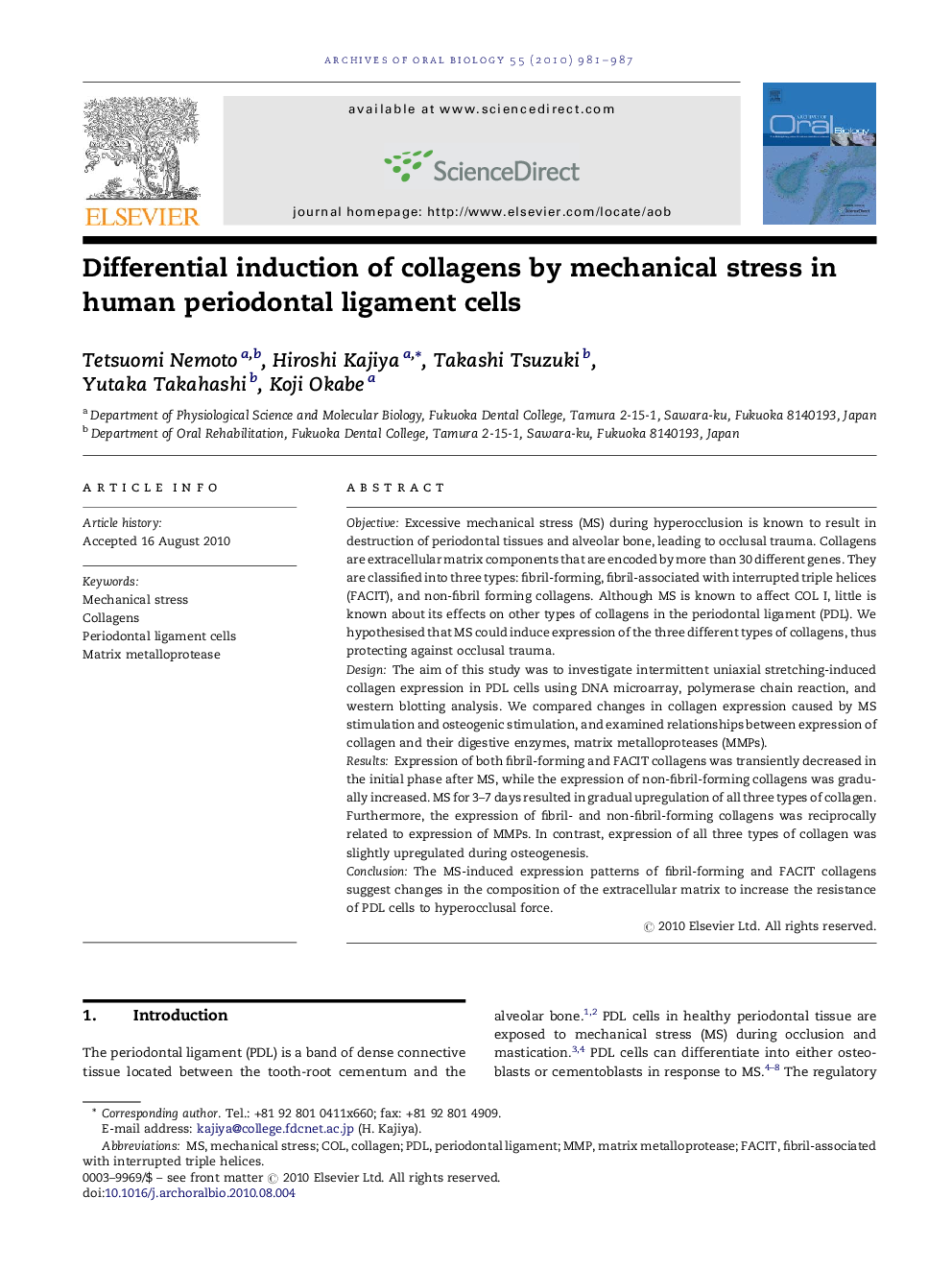| Article ID | Journal | Published Year | Pages | File Type |
|---|---|---|---|---|
| 3121043 | Archives of Oral Biology | 2010 | 7 Pages |
ObjectiveExcessive mechanical stress (MS) during hyperocclusion is known to result in destruction of periodontal tissues and alveolar bone, leading to occlusal trauma. Collagens are extracellular matrix components that are encoded by more than 30 different genes. They are classified into three types: fibril-forming, fibril-associated with interrupted triple helices (FACIT), and non-fibril forming collagens. Although MS is known to affect COL I, little is known about its effects on other types of collagens in the periodontal ligament (PDL). We hypothesised that MS could induce expression of the three different types of collagens, thus protecting against occlusal trauma.DesignThe aim of this study was to investigate intermittent uniaxial stretching-induced collagen expression in PDL cells using DNA microarray, polymerase chain reaction, and western blotting analysis. We compared changes in collagen expression caused by MS stimulation and osteogenic stimulation, and examined relationships between expression of collagen and their digestive enzymes, matrix metalloproteases (MMPs).ResultsExpression of both fibril-forming and FACIT collagens was transiently decreased in the initial phase after MS, while the expression of non-fibril-forming collagens was gradually increased. MS for 3–7 days resulted in gradual upregulation of all three types of collagen. Furthermore, the expression of fibril- and non-fibril-forming collagens was reciprocally related to expression of MMPs. In contrast, expression of all three types of collagen was slightly upregulated during osteogenesis.ConclusionThe MS-induced expression patterns of fibril-forming and FACIT collagens suggest changes in the composition of the extracellular matrix to increase the resistance of PDL cells to hyperocclusal force.
